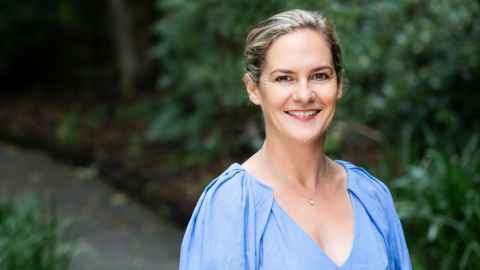Academic explores protection of reproductive choices
13 December 2023
We can freeze eggs and sperm, undergo in-vitro fertilisation treatment, or choose sterilisation or contraception, but if something goes wrong, the path to justice is complicated, says Dr Anna Broadmore.

What if your partner lied about contraceptive measures to stop you from taking your own precautions, and you unintentionally conceived a child with them? What if the eggs you thought were frozen were lost, thawed or mistakenly switched with someone else's?
Throughout the world, people who have had their reproductive choices interfered with, whether through negligence or intent, are heading to court to seek compensation.
Although there’s a judicial desire to provide remediation, there’s uncertainty around how to go about it, and the law is in a transitional state of disarray, says University of Auckland law lecturer Dr Anna Broadmore.
Broadmore's doctoral thesis, ‘The private law right to reproductive control’ explores the legal challenges faced by individuals whose reproductive choices have been disrupted.
In examining case law throughout the Commonwealth, she argues that reproductive control can and should be recognised as a protected interest within the common law.
“This would enable the law to respond to interferences with reproductive choices in the same way other protected interests in common law, including property, bodily integrity and privacy, help to inform the outcome when these interests are interfered with,” says Broadmore.
The cases referenced in her thesis include a foiled fertility treatment in which the child born had no biological relationship to the planned father. Another details the experience of cancer patients who decide to freeze their sperm to keep the possibility of children open post-treatment, but later found that their reproductive material was negligently destroyed.
In another case, a woman lied about taking contraception, so her partner decided not to take his own precautions, and as a result, the woman fell pregnant. In this case, the law didn’t require the woman to consider her partner's wishes regarding reproduction when deciding how to act, and he didn’t receive any remedy for the immense disruption to his life.
Recognition of a private law right to reproductive control would enable a different outcome, says Broadmore.
“In the absence of judicial recognition of a protected interest in reproductive control, the courts often rely on other recognised interests in order to resolve a dispute, but this can lead to misfocused and unjust outcomes.”

Property rights, says Broadmore, were relied on in a Canadian decision involving a dispute around the use of embryos created with sperm donated as an act of friendship. After the sperm donor’s court-ordered access was continually obstructed by the mother, the donor didn’t consent to the use of the remaining embryos. Nevertheless, the Court said the mother could use them without his consent on the basis that the donation of sperm was a gift of property, and the resulting embryos were deemed “chattels that can be used as she sees fit".
This analysis, says Broadmore, fails to consider the significant effect that the unconsented use of the embryos would have on the father’s life.
She notes that while developments in biotechnology and contraception have increased the reproductive possibilities available, the law has failed to keep up.
“This has created a gap in the protection provided to our reproductive control and disarray in the common law response to disputes arising.”
Broadmore says that while the common law protection provided to bodily integrity once also protected our reproductive choices, this is no longer the case. Reproductive choices are no longer entirely bound to and intertwined with the body.
“Recognising reproductive control as an independently protected interest within the common law would recognise and respond to these developments and ensure that our interest in reproductive control has the protection that its significance requires.”
Media contact
Sophie Boladeras I Media adviser
M: 022 4600 388
E: sophie.boladeras@auckland.ac.nz